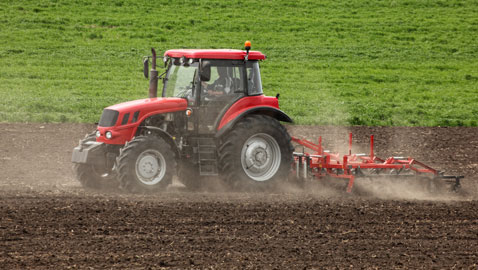
Farmland prices reached another record high during the final six months of 2013, rising by around 15% in the space of a year, according to the latest RICS/RAU Rural Land Market Survey for the second half of 2013.
During the second half of last year, the average cost of farmland rose to £7,754 per acre across England and Wales, hitting a record high for the ninth consecutive period. The cost of land is now 14.3 percent higher than during the same period in 2012 when an acre cost, on average, just under £6,800.
RICS said growth in prices has been driven by the on-going surge in demand from farmers looking to expand their operations, while the amount of land coming up for sale is continuing to lag well behind. However, with many areas having been subject to severe flooding in recent weeks, it remains to be seen what impact this will have on the price and saleability of farmland in some areas, the institution added.
Despite remaining unchanged on the first half of the year, prices in the North West were the highest in Great Britain with the cost of an acre coming in at £8,813. Meanwhile, land north of the border, in Scotland, was the least expensive with an acre costing around £3,750.
Chartered surveyors are predicting prices to continue to rise over the coming year, given the significant supply-demand imbalance. However, with floods having swept across the country, markets in the southern regions could well be significantly affected in terms of both transactions and prices.
Jeremy Blackburn, RICS’ head of UK policy, said: “Farmland price growth has been enormous in recent years. With commodity prices now having remained strong for some time, many farmers have been looking to expand their businesses and, with so little actually coming up for sale, competition for good land is fierce.
“Although, with floods having devastated large swathes of southern England, what remains to be seen is the impact this has on the market in these areas and further afield. It will not be surprising to see this have a negative effect on transactions.
“In fact, a lot of the best quality and highest value agricultural land in the UK is located close to rivers and on floodplains so this too could potentially have an impact on food production.”


